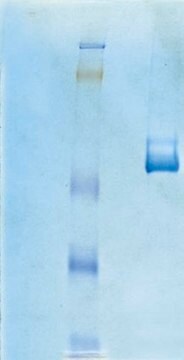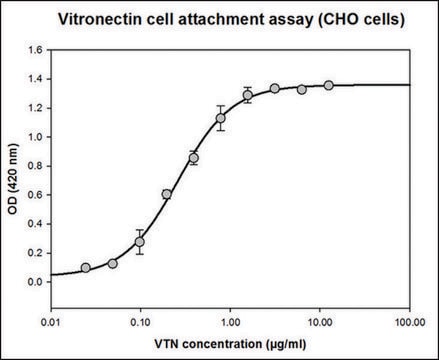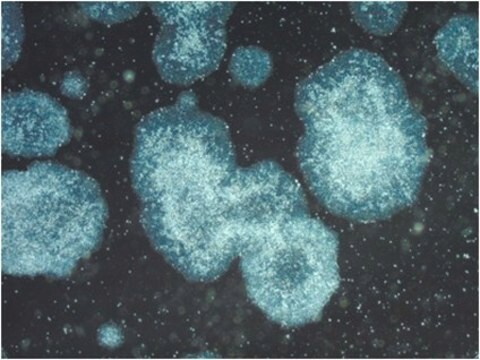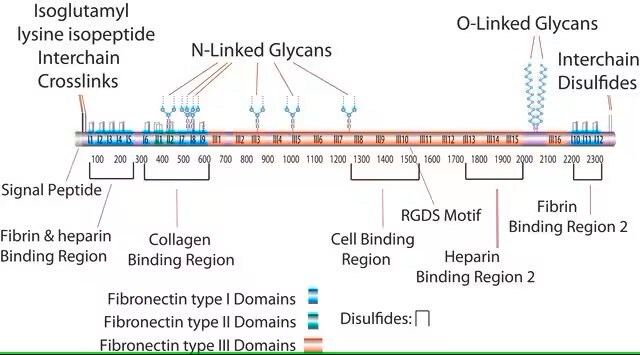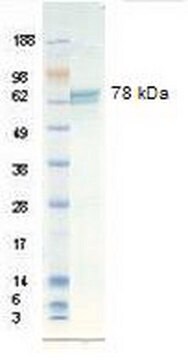5051
Human Vitronectin
from human plasma, liquid, 0.5 mg/mL, suitable for cell culture
Sinónimos:
Cell adhesion protein, ECM protein
About This Item
Productos recomendados
product name
Vitronectin, from human plasma, suitable for cell culture, solution
biological source
human plasma
Quality Level
sterility
sterile-filtered
assay
>95%
form
solution
mol wt
75 kDa
packaging
pkg of 0.1 mg
concentration
0.5 mg/mL
technique(s)
cell culture | mammalian: suitable
solubility
water: miscible
UniProt accession no.
shipped in
dry ice
storage temp.
−20°C
Gene Information
human ... VTN(7448)
General description
Vitronectin′s primary use in cell culture is related to cell adhesion. It also binds to heparin and collagen.
Vitronectin is ideal for coating of surfaces. The optimal concentration for cell attachment and culture may differ for various cell types. Vitronectin has been used at a final coating concentration as low as 50 ng/cm2 on plasticware. It is provided in user-friendly packaging for use and storage. Vitronectin is sterile filtered and is supplied as a ready to use solution after thawing and concentration adjustment.
Biochem/physiol Actions
Preparation Note
Disclaimer
Storage Class
10 - Combustible liquids
flash_point_f
Not applicable
flash_point_c
Not applicable
Certificados de análisis (COA)
Busque Certificados de análisis (COA) introduciendo el número de lote del producto. Los números de lote se encuentran en la etiqueta del producto después de las palabras «Lot» o «Batch»
¿Ya tiene este producto?
Encuentre la documentación para los productos que ha comprado recientemente en la Biblioteca de documentos.
Artículos
Extracellular matrix proteins such as laminin, collagen, and fibronectin can be used as cell attachment substrates in cell culture.
Nuestro equipo de científicos tiene experiencia en todas las áreas de investigación: Ciencias de la vida, Ciencia de los materiales, Síntesis química, Cromatografía, Analítica y muchas otras.
Póngase en contacto con el Servicio técnico